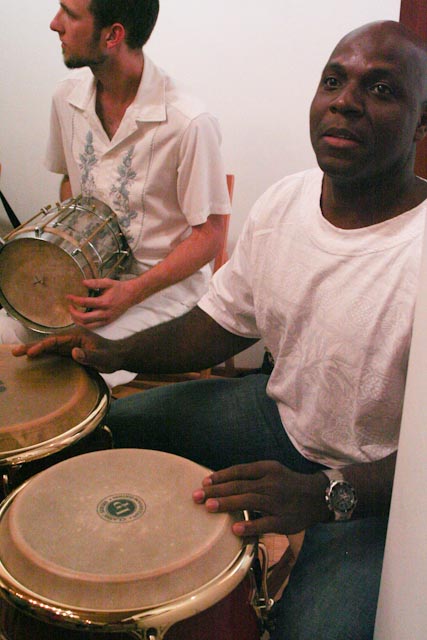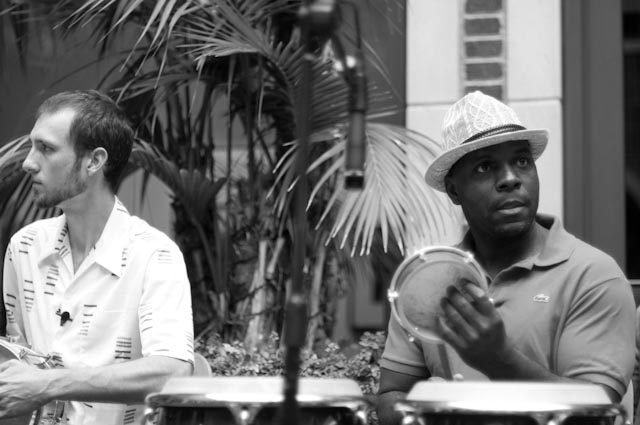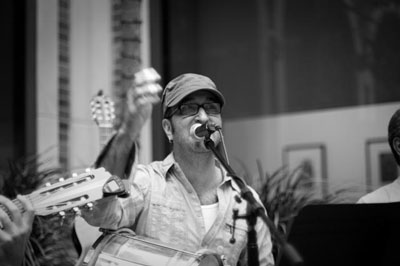Joselito “Amen” Santo
Afro-Brazilian Candomblé percussion
Atabaque drums are used both in sacred (Candomblé) and secular (batuque and samba dance) contexts. The repertory associated with Candomblé is vast, with a number of distinct rhythms played for for each orixá (diety) in the pantheon. These rhythms employ the use of three atabaque drums (low to high the rum, rumpi, and lê) played with sticks, with each drum playing a distinct variation. In secular contexts, the drumming associated with many popular dances is played with the hands and has much more freedom for improvisation.
Mestre Joselito “Amen” Santo was initiated into the Candomblé religion as a young boy in his native Brazil. He was called to become an ogan (master drummer) by his patron orixá Oxaguiãn. In addition to his training in Candomblé percussion, Amen is also extensively trained in capoeira and Afro-Brazilian folkloric dance. He trained in capoeira with Mestre Waldemar da Paixão and Maestr Ávila, was mentored in percussion by Negão de Doni, and studied dance with Emilia Biancardi. He is a former member of Brazil’s historic Viva Bahia dance ensemble.
Amen was a master artist in ACTA’s Apprenticeship Program in 2011, with apprentice Beto Gonzalez. The apprenticeship focused on improving Beto’s technique, as well as building his knowledge of the vast Candomblé repertoire of rhythms.



